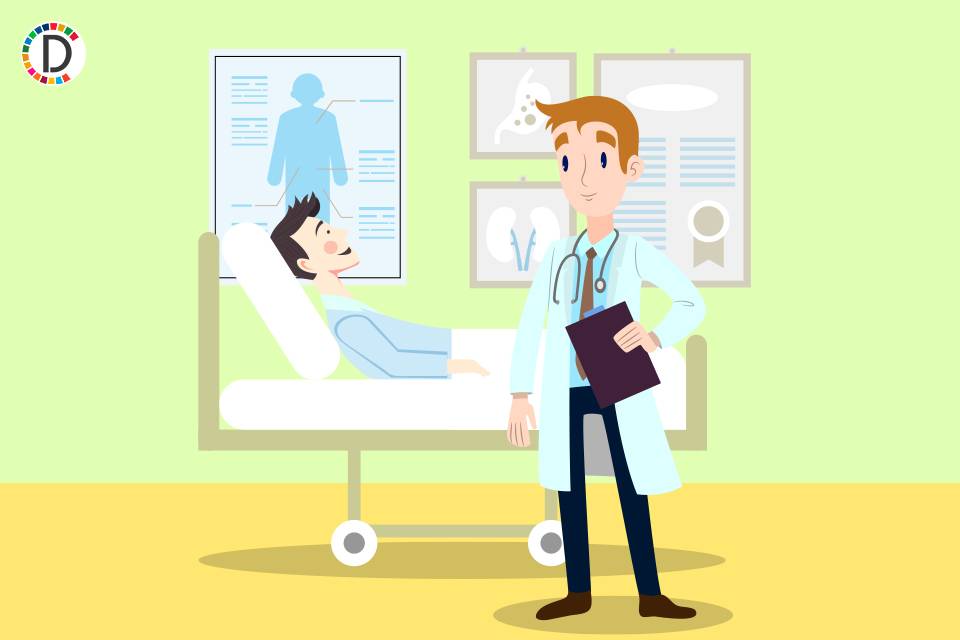Study finds very few neurosurgeons, neurologists, critical care specialists trained during MBBS on certifying brain death

- Country:
- India
Less than half of 177 neurosurgeons, neurologists and critical care specialists who took part in a survey were trained on certifying brain death during their MBBS course, a study by AIIMS, Delhi doctors along with others has found.
According to the recently-published study, 37.3 per cent stated that there is no fixed curriculum for resident training in Brainstem death certification (BDC), while only 10 per cent reported regularly training their residents in it.
BDC is a fundamental process in the organ donation workflow, serving as a prerequisite for the ethical and legal procurement of organs from deceased donors.
Nearly three-fourth of the respondent doctors were employed at teaching hospitals, with 51.4 per cent in the public sector and 24.9 per cent in the private sector, the study found.
Surprisingly, 22.6 per cent never train their residents on brain death certification and organ donation.
''It is crucial to address gaps in the knowledge and practices of BDC among physicians to enhance organ donation rates in India,'' the study highlighted.
Majority of respondents identified a lack of public awareness as the primary reason for low organ donation rates in India. Additionally, 62.1 per cent cited family refusal as a significant factor, the study said.
Other factors included the absence of organ transplant facilities in parent hospitals (43.5 per cent), indifferent attitudes of clinicians toward BDC in brain-dead patients (43.5 per cent), and a lack of confidence among clinicians to declare brain death (36.7 per cent).
Religious beliefs were also noted as a reason for refusal to donate organs by 50.2 per cent of respondents.
Organ donation is a critical aspect of modern medicine, potentially having saved countless lives. Despite this, India faces considerable challenges in organ donation rates, particularly concerning deceased donors, the study said.
India lags significantly behind many other countries, with a rate of only 0.7 per million population (pmp) compared to 40-50 pmp in Spain and the US.
The low rates of organ donation in India can be attributed to multiple factors, including lack of awareness or misinformation among the public and lack of comprehensive knowledge about organ donation among the treating physicians, the study stated.
Adequate understanding and consistent application of brain death criteria by physicians are crucial to ensuring that potential organ donors are accurately identified and managed, the doctors stated.
The Transplantation of Human Organs Act (THOA) was enacted in 1994 in India to regulate the process of removal, storage, and transplantation of human organs for therapeutic purposes and prevent commercial dealings in human organs.
However, its impact has been poor, largely due to gaps in the knowledge and practices among physicians regarding BDC.
The objective of this survey was to assess the key areas in the knowledge gaps and the variability in BDC practices among the specialist physicians involved in organ donation in India, the study said.
Such an effort is imperative to bring policy changes in imparting training and awareness in BDC. Healthcare professionals with adequate knowledge and positive attitudes toward deceased-donor organ transplantation tend to boost the consent rates for donations, ensuring that more lives can be saved through timely and efficient organ transplants.
Authors of the study included those from Department of Neurosurgery, AIIMS Delhi; Department of Anesthesia, AOU Policlinico Gaetano Martino, University of Messina, Italy; Department of Neurosurgery, Christian Medical College, Vellore, Tamil Nadu; Department of Anaesthesiology, Division of Neuroanesthesia and Neurocritical Care and also Department of Neurosurgery, Sree Chitra Tirunal Institute for Medical Sciences and Technology, Trivandrum, Kerala; and Department of Urology and Renal Transplantation, Madras Medical Mission Hospital, Chennai.
(This story has not been edited by Devdiscourse staff and is auto-generated from a syndicated feed.)
- READ MORE ON:
- Spain
- Vellore
- Anesthesia
- Department of Neurosurgery
- Sree Chitra Tirunal Institute for Medical Sciences and Technology
- Trivandrum
- Department of Urology
- University
- clinicians
- The Transplantation of Human Organs Act
- Kerala
- Delhi
- Department of Anaesthesiology
- Messina
- Mission Hospital
- Christian Medical College
- Division of Neuroanesthesia and Neurocritical Care
- Chennai
- Italy
- Department
ALSO READ
UPDATE 1-UK PM Starmer to visit India on 8-9 October, says Indian foreign ministry
Sandhya Shantaram’s demise a great loss to Indian cinema, says Shelar
DP World India Championship unveils Lotus Trophy inspired by Indian heritage
India, Bhutan hold talks on bilateral ties, trade, connectivity
Goyal calls for greater collaboration between India, Singapore businesses










